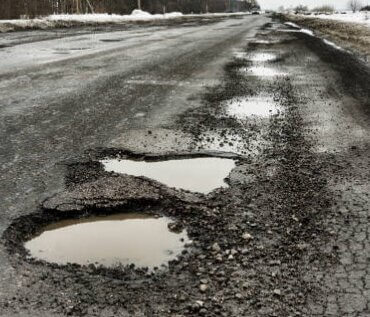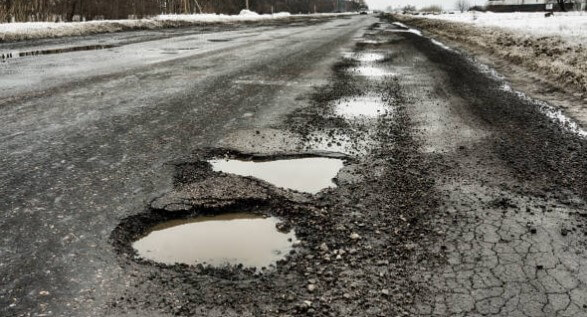
Travelling north back towards Cambridge at the weekend my front left wheel slammed into a huge pothole just south of Turangi. My (earlier) maritime background has fitted me for suitable voluble expletives for such unplanned occurrences – luckily my long-suffering wife has heard them all before.
But this is the main backbone infrastructure of the country – so why are we accepting such poor performance by our professional roading body and their contractors? Why is it that this crater almost cost me a very expensive front tyre? Why should I be complacent and just accept that we are living in (almost) third world conditions despite paying heavy roading taxes through the petrol pump or road user charges for diesel?
You have every tight to chastise me when comparing my incursion into road rage language when set alongside the appalling state of the roads in Northland and on the East Cape. There, frequent large slips and attendant weeks of clearing-up delay far outweigh my discomfort.
Now call me churlish if you will. But either we have first class roading engineers (Transmission Gully says it is so as I drove that over the recent weekend) or we do not.
But potholes, slips and a make-do-and-mend mentality abounds. Roads have for 150 years been supported by a ‘she’ll be right’ approach by successive governments afraid to address the big picture.
To the good people of Ruatoria or Wairoa their road is just as important as Transmission Gully. It is their right as taxpayers to expect the same level of smooth tarmac, roadside barriers and relatively high-speed rules as those who experience the Waikato Expressway.
Newly spun Prime Minister Hipkins has correctly determined there is an urgent need to lift the helicopter higher and take a birds-eye view of the roading system. Let us make a clear statement here. Alternative movement by rail of goods and people will never cut the mustard in this country. Narrow gauge old age thinking, lack of electrification and poor, ageing second-hand rolling stock will never meet a modern demand.
Every government sinks huge funds into the rail system just to see it drain out of the bottom end of the infrastructure pit.
That said I do have some feeling for those charged with – or possibly struggling with – making a cow out of a pig’s ear regarding the iron track. They inherited narrow gauge. They inherited the poor topography over which the lines run. They inherited the low-speed average of freight trains at 40kph. And they combat the vociferous pressure of the two main road freight lobbying groups. Heaven forbid we should wait for another multi-million dollar consultant’s report on the opportunity of coastal shipping to relieve the rail and road-clogging freight industry.
Message for Premier Chippy – just do it lad. Forget light rail in Auckland – the airport does not need a rail link.
Ask the people who are stranded – and will be again if you do not act promptly with leadership and courage. New-born children and their remotely placed mums have just as much right to expect services as the truck operators and their customers.










